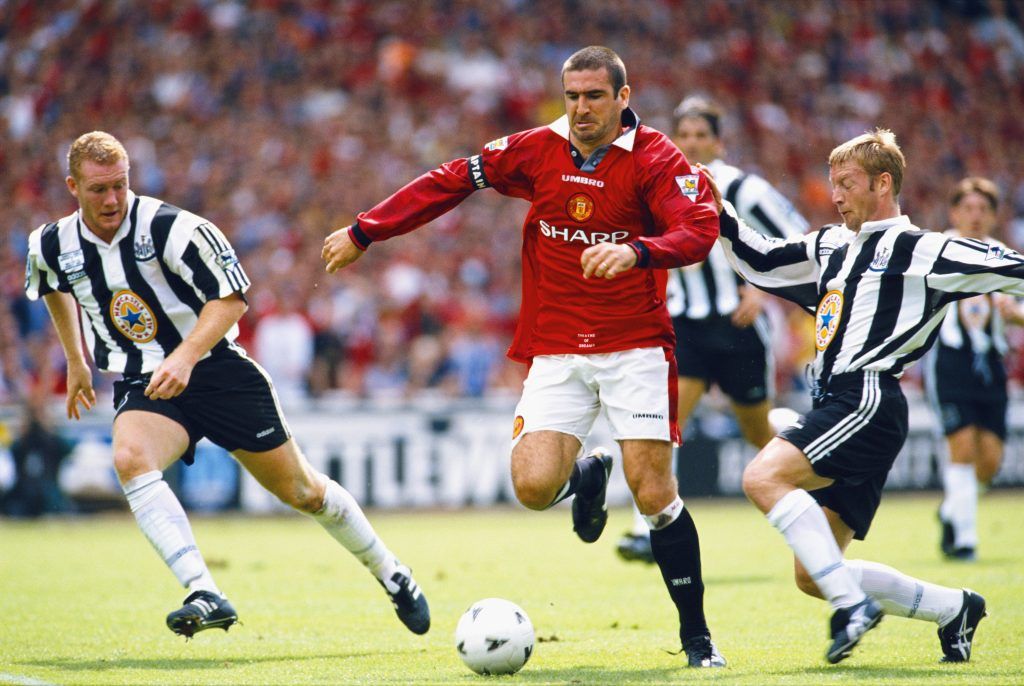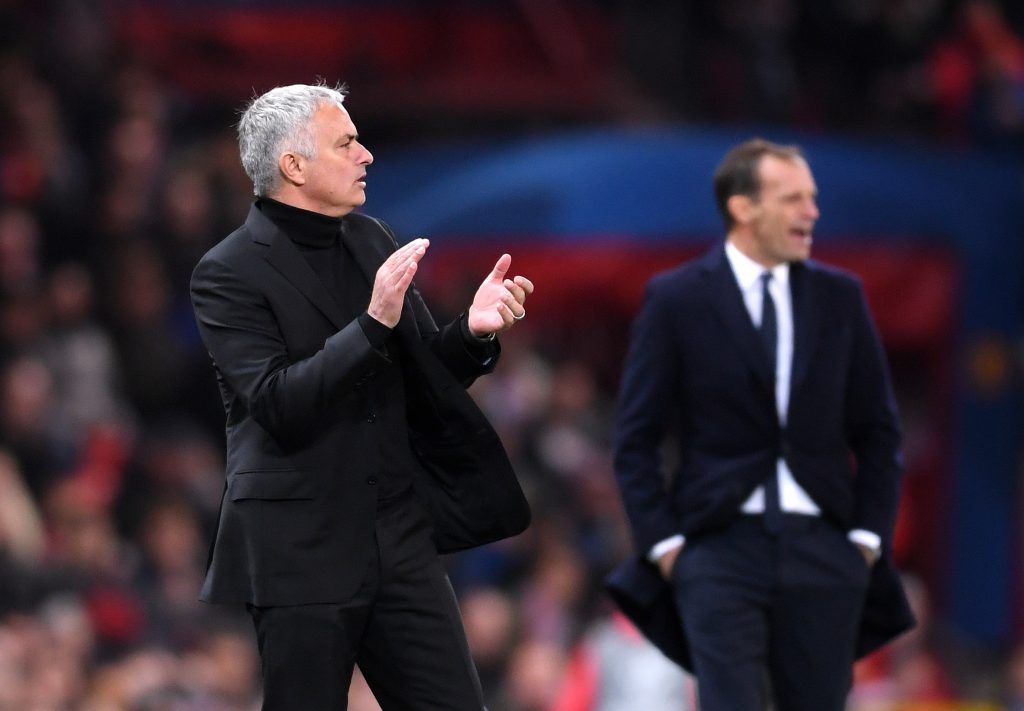“This was their reward for taking the gamble”
From the moment he arrived at the club from Leeds United in November 1992, Eric Cantona got what it meant to be a Manchester United player.
Long before he arrived at Old Trafford, it was obvious that Jose Mourinho was a terrible fit for United.
This Cantona story, told by Roy Keane, sums up exactly why.
There have been more consistent and prolific United players, but few made a mark on English football like Cantona. He was a transformative presence, the spark that ignited the United’s most successful period.
Between 1992 and his retirement in May 1997, the Frenchman was the most famous, gifted and controversial footballer in the Premier League.
He helped United win four league titles and two FA Cups in five seasons. He was the centre-piece of Alex Ferguson’s first great team and the catalyst for their dominance of English and eventually European football.
Cantona’s effect on his teammates, especially the Class of 92 – Gary & Phil Neville, Ryan Giggs, David Beckham, Nicky Butt and Paul Scholes – was seismic.
His impact at the club was so great that, 21 years after he retired, fans at Old Trafford still sing his name.
Cantona was a wonderful footballer, blessed with great balance and fantastic technique. He was also a meticulous professional, the hardest working player at the club.
But more than anything else, Cantona just seemed to get what it meant to play for United. He knew that the club had a history of playing attacking, exciting football, that it was about entertainment for the fans.
With his collar-up and chest puffed out, Cantona strode onto the pitch like an actor walking onto a stage. It’s no surprise that the Frenchman went on to be an actor and an artist.
He also knew that playing for United meant taking risks. And that’s something that can never be associated with Mourinho’s football.
This story, from Keane’s first autobiography, sums up how Cantona, and United as a club, valued risk-taking.
“One morning, Brucey arrived in the dressing room with a cheque for fifteen grand. The first team squad had contributed to some video and this payment was due to be split eighteen ways. Struggling to work out who was owed what, we decided on a majority vote to hold a draw, winner takes all. The option of taking your cut, about eight hundred quid, was available.
“For the younger lads, this was a couple of weeks wages. They wanted the money. Only Paul Scholes and Nicky Butt opted to play for the pot – about twelve grand after the needy had been paid out. Eric Cantona’s name came out of the hat. He got his cheque. And plenty of stick.
“Next morning, Eric arrived with two cheques made out to Paul and Nicky. This was their reward for taking the gamble, Eric explained. That was Eric to a T.
“The unexpected, a touch of class and an appreciation of the plight of two young lads in need of the money more than himself.”
Cantona rewarded two young players for taking a risk, while also showing a touch of class.
Barcelona and Ajax have an ideological overview of how their teams should play. But for United, it was about taking risks – that, more than any defined idea of play, was the “Manchester United way.
There are several stories of Keane admonishing his teammates for not passing the ball forward quickly enough. He tore into Rio Ferdinand on his first day in training for United.
Keane told the world’s most expensive defender to “pass it fucking forward.” Backwards and sideways passes wouldn’t do.
The last-minute goals under Ferguson occurred because the team threw caution to the wind and took risks, they pushed and pushed until they got the goals they needed.
For Mourinho, it is the complete opposite. His approach as a manager is to minimise risk. In the account of his time at Real Madrid, the author Diego Torres details some of his key tenants to win big matches.
For Mourinho, the team with the ball is more likely to make a mistake, they are the ones with the “fear.” And the team that make the fewest mistakes, will win the game.
For a long time, this approach brought him success. But United are now numbed by their manager’s reactionary tactics.
Against Juventus on Tuesday, they put in a passive, lumbering and clunking display.
The players, following orders, looked afraid to break from their positions to put pressure on the opposition. Mourinho watched on as his team were completely outclassed.
"Regardless of who United sign, they're still managed by Mourinho" – Here's something @RobRedmond10 wrote last summer about Mourinho and Man United https://t.co/06kpz0J0o2
— FootballJOE (@FootballJOE) April 15, 2018
In the past, United scored goals in stoppage-time. Now, the manager goads the opposition supporters by reminding them of his past success. Mourinho would rather do that than take a risk and urge his team to push forward. After the match, he complained that he didn’t have Marouane Fellaini to call upon.
His aversion to risk meant he was always going to be a poor fit for the club. The story about Cantona highlights that.
The quality that brought Ferguson, Keane and Cantona success, their willingness to take risks, has always been absent from Mourinho’s approach. It was always going to be this way under him.






































